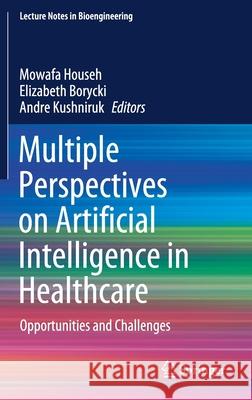Multiple Perspectives on Artificial Intelligence in Healthcare: Opportunities and Challenges » książka
topmenu
Multiple Perspectives on Artificial Intelligence in Healthcare: Opportunities and Challenges
ISBN-13: 9783030673024 / Angielski / Twarda / 2021 / 196 str.
Kategorie BISAC:
Wydawca:
Springer
Seria wydawnicza:
Język:
Angielski
ISBN-13:
9783030673024
Rok wydania:
2021
Wydanie:
2021
Numer serii:
000458312
Ilość stron:
196
Waga:
0.46 kg
Wymiary:
23.39 x 15.6 x 1.27
Oprawa:
Twarda
Wolumenów:
01
Dodatkowe informacje:
Wydanie ilustrowane











